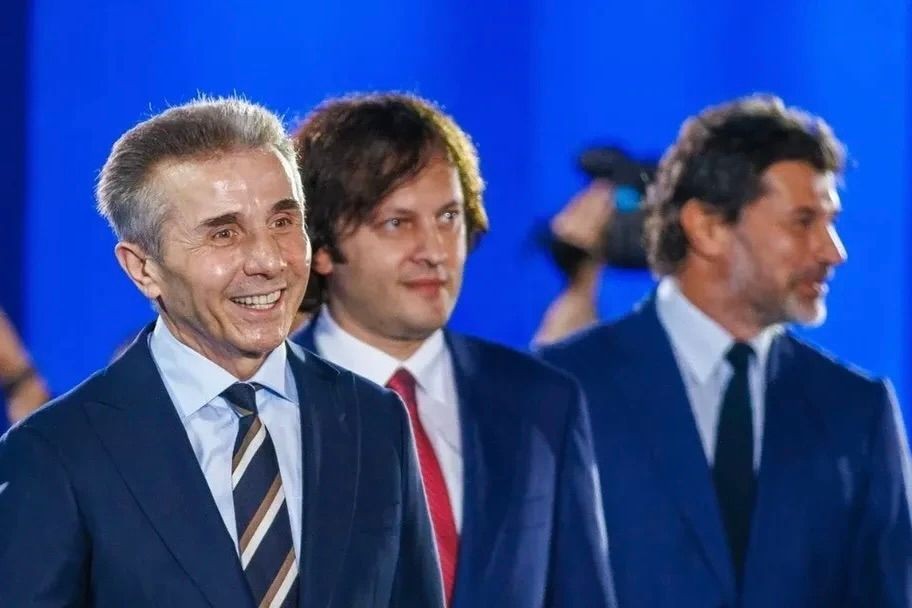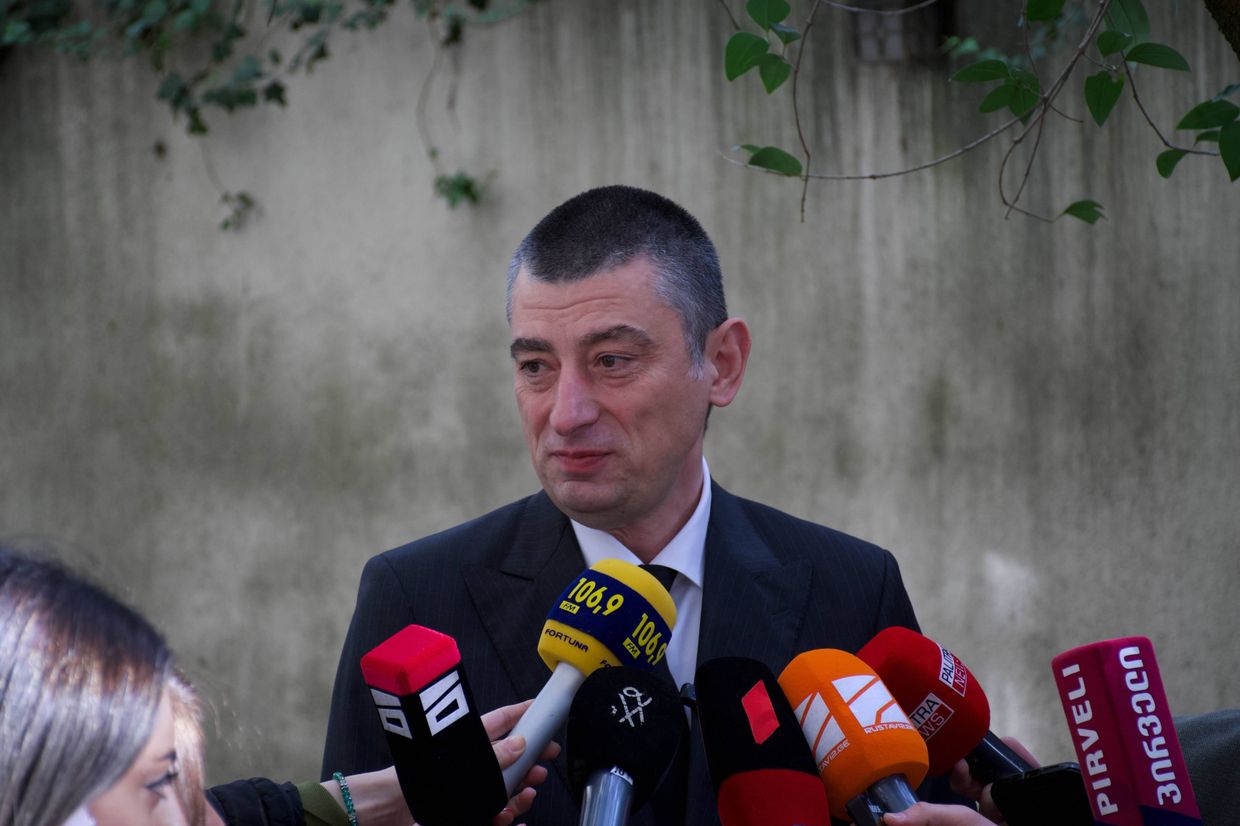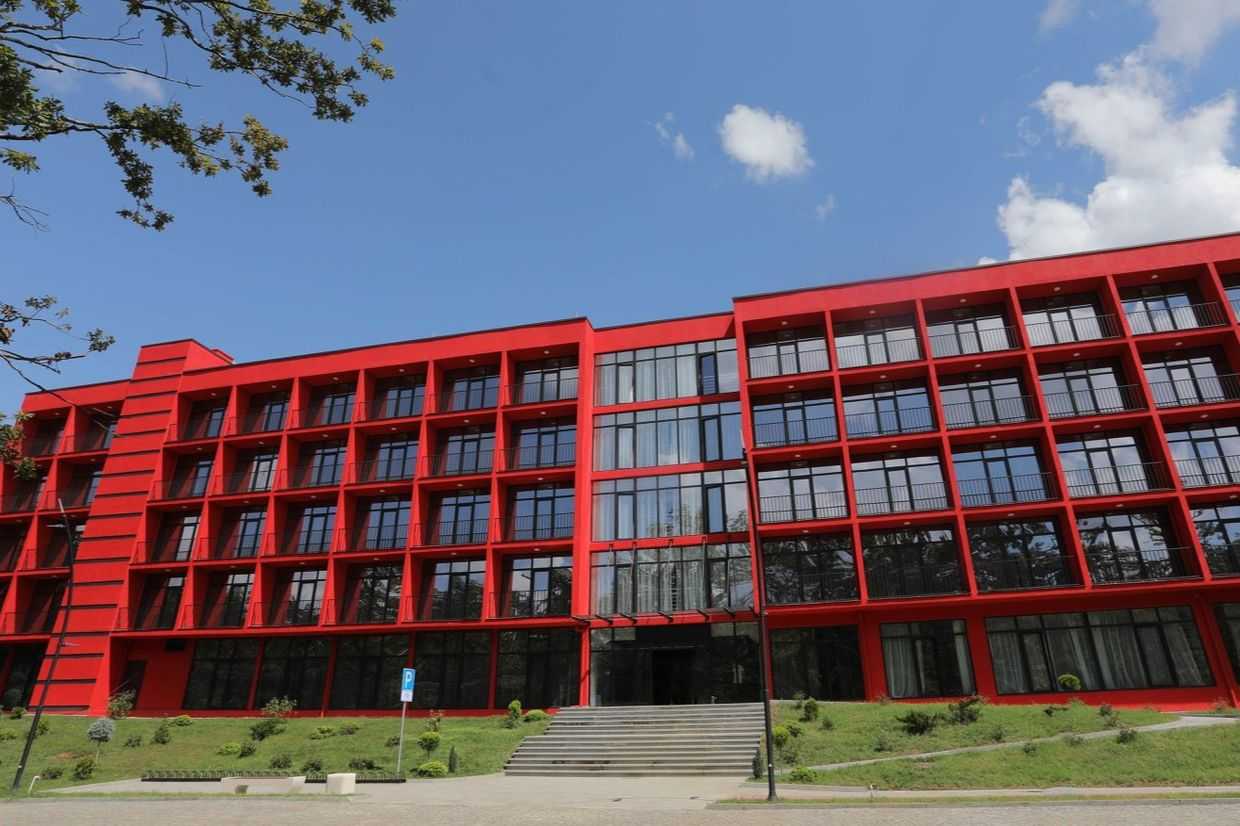
The ruling Georgian Dream party has announced that its constitutional lawsuit seeks to ban three of the four major opposition parties, while refraining, at this stage, from requesting restrictions on the political activities of individual members.
The Tuesday briefing, held by Parliamentary Speaker Shalva Papuashvili, shed light on the long-promised plan to ban opposition parties, revealing the names of the targeted parties in the constitutional lawsuit.
According to Papuashvili, the lawsuit seeks to ban Ahali, the United National Movement (UNM) and Lelo. These three major opposition parties had, through their respective coalitions, secured the first three positions in the 2024 disputed parliamentary elections, following the ruling party.
The UNM is the former ruling party that is now in the opposition; it governed Georgia from 2003 to 2012 under the tenure of ex-President Mikheil Saakashvili, who is now in prison. Ahali was founded in 2024 by former UNM leader Nika Melia together with former UNM official-turned-opposition media figure Nika Gvaramia. In turn, Lelo was created in 2019 by TBC Bank founders Mamuka Khazaradze and Badri Japaridze.

Banning the major opposition groups was the ruling party’s pre-election promise before the crucial 2024 vote. At the time, Georgian Dream stated that it would turn to the constitutional court to ban those groups, which it often refers to as the ‘collective UNM’, encompassing the UNM as well as other parties that, according to Georgian Dream, are linked to it.
The ruling party’s position is that the formerly-ruling UNM represented a criminal regime and should not be allowed to continue existing. According to Georgian Dream, the UNM, along with other political groups, continued ‘anti-state’ activities after its defeat in the 2012 elections, when Georgian Dream came to power.
To underscore the alleged ties between the UNM and other major opposition parties operating in the country, Georgian Dream often uses the terms ‘UNM satellites’ and ‘collective UNM’.
Georgian Dream based its demand for a ban on the opposition on the conclusions of a controversial parliamentary commission created to investigate the opposition in February 2025. The commission’s lengthy report was released in September.
Among the report’s most controversial aspects was its insinuation that Georgia was responsible for provoking the August 2008 War, which critics argue downplays Russia’s responsibility for the war.
During Tuesday’s briefing, Papuashvili once again accused the UNM of systematic human rights violations and provoking the war during its time in power, as well as of ‘refusing to recognise the legitimacy of bodies elected through universal elections and of attempting to overthrow or violently alter Georgia’s constitutional order’.
In the context of accusations of refusing to recognise elected bodies and engaging in ‘sabotage’, Papuashvili also referenced the parliamentary boycott that all major opposition groups initiated following the disputed 2024 parliamentary elections.
According to Papuashvili, the lawsuit will be submitted to the Constitutional Court after it passes a review by the Parliament’s Procedural Committee.
He added that European Socialists and People’s Power — two satellite parliamentary groups of Georgian Dream — will also join the lawsuit.
Gakharia’s party, smaller groups, and individuals are off the plate — for now
Georgian Dream’s constitutional lawsuit does not seek to ban the fourth major opposition party, For Georgia, founded in 2021 by former Prime Minister and now opposition leader Giorgi Gakharia.
This comes despite the fact that, in the past, the ruling party sometimes included Gakharia’s party among those it aimed to ban.
According to Papuashvili, Gakharia’s party avoided possible sabotage accusations by recently ending the parliamentary boycott it had joined a year ago alongside other opposition parties. All 12 of For Georgia’s MPs entered parliament on Tuesday, just a few hours before Papuashvili’s briefing, after the party stated that its boycott decision had been a mistake.

Papuasvili further added that the lawsuit will not concern the parties’ mandates in the municipal councils. Accordingly, Lelo members will retain the mandates they won in the 2025 municipal vote, which was boycotted by the UNM, Ahali, and several other opposition groups.
According to Papuashvili, at this stage, Georgian Dream is not seeking to ban the smaller parties that are allied with Ahali and the UNM.
This includes Strategy Aghmashenebeli and European Georgia, which formed an alliance with the UNM ahead of the 2024 elections, as well as Girchi – More Freedom and Droa, which allied with Ahali.
Papushvili stated that, at present, these parties ‘do not have significant influence, including a realistic prospect of overcoming the electoral threshold’, and therefore ‘there is no necessity to ban them’.
However, he issued a warning that the question of their constitutionality could be revisited later if they gain substantial influence over the political process.
Papuashvili’s statement also clarified that, at this stage, Georgian Dream will not invoke its legislative changes, passed on 16 October, to seek restrictions on the political activities of individuals associated with its targeted parties, even though the ruling party had previously suggested such a plan.
According to Papuashvili, it was decided that another legislative change, adopted by Georgian Dream in April, is more effective than individual bans. This law allows the constitutional court to ban parties that are deemed similar to already banned parties.
As he noted, Georgian Dream will monitor and act if it observes that representatives of a banned party are attempting to form a new party or join another existing party.

Georgian Dream is preparing to request the banning of parties against the backdrop of a general democratic backslide, during which the ruling party has already targeted civil society, independent media, and street protests through a continuing series of legislative changes.
The political crisis is occurring against the backdrop of the ruling party’s suspension of Georgia’s EU membership bid in November 2024, which was followed by a wave of daily protest actions in Tbilisi and several other cities.
Dozens of demonstrators were arrested during the ongoing protests, in addition to the detention of a large number of opposition leaders on various charges, including for boycotting the controversial parliamentary commission, which was classified as a criminal offence.

This article was translated into Armenian and republished by our partner CivilNet.










